Viviani scared that some riders still think about doping
'I'm lucky to be part of this generation'
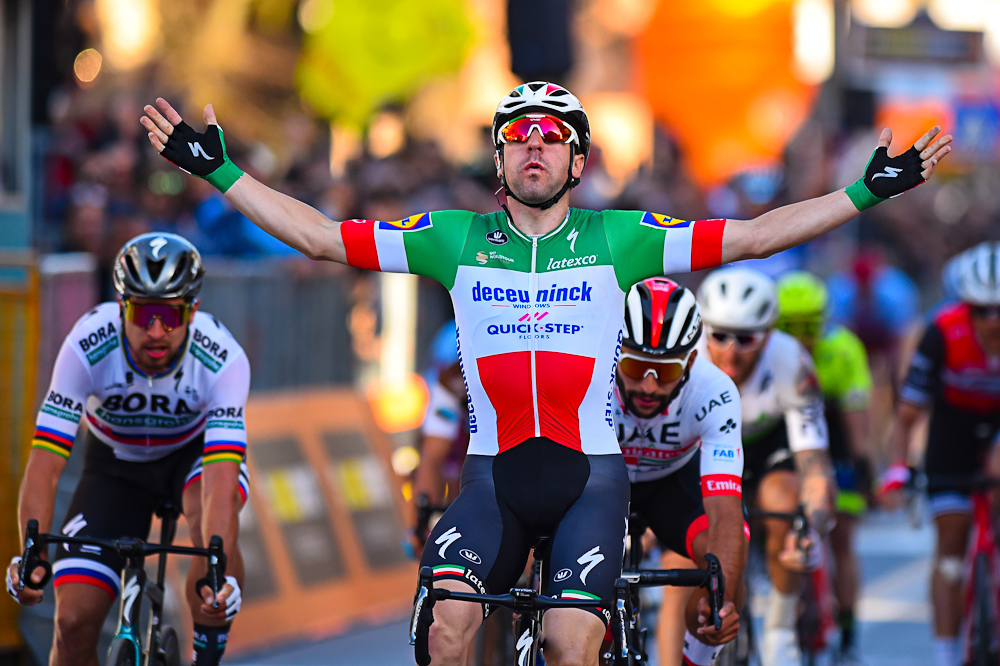
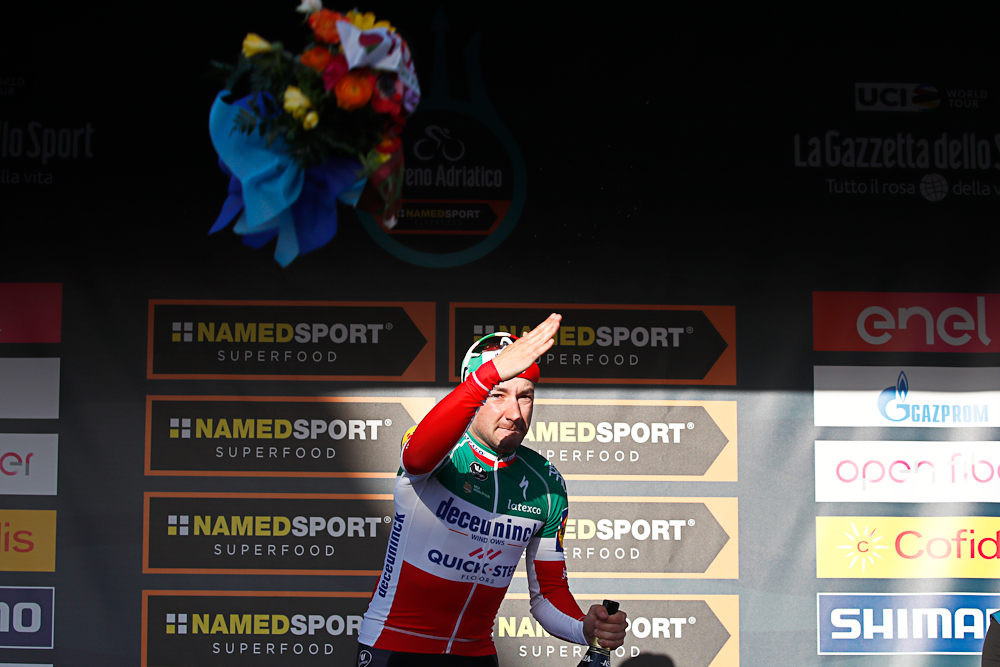
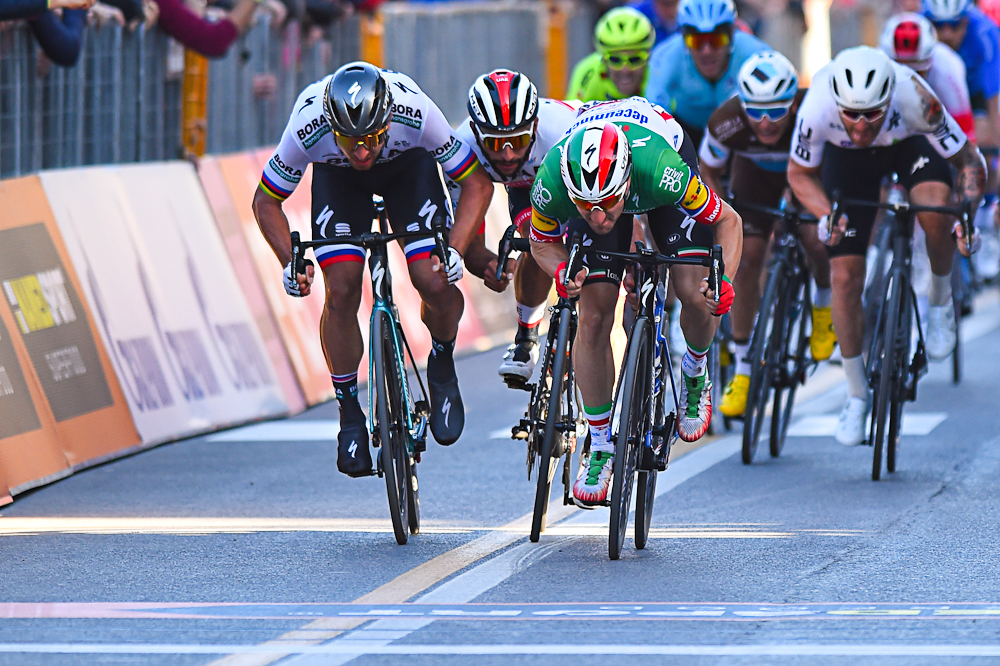
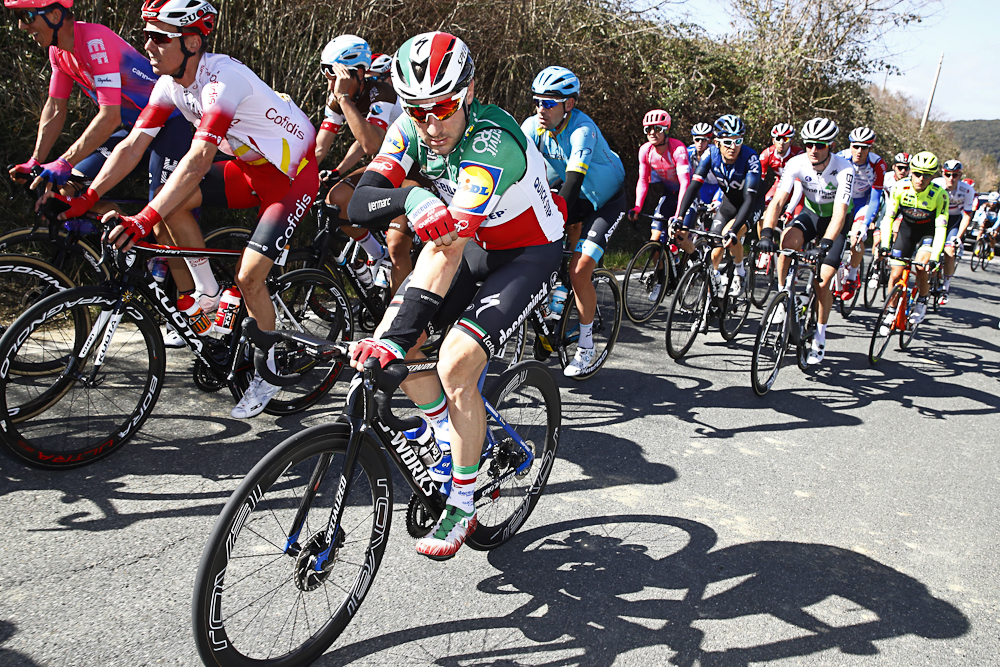
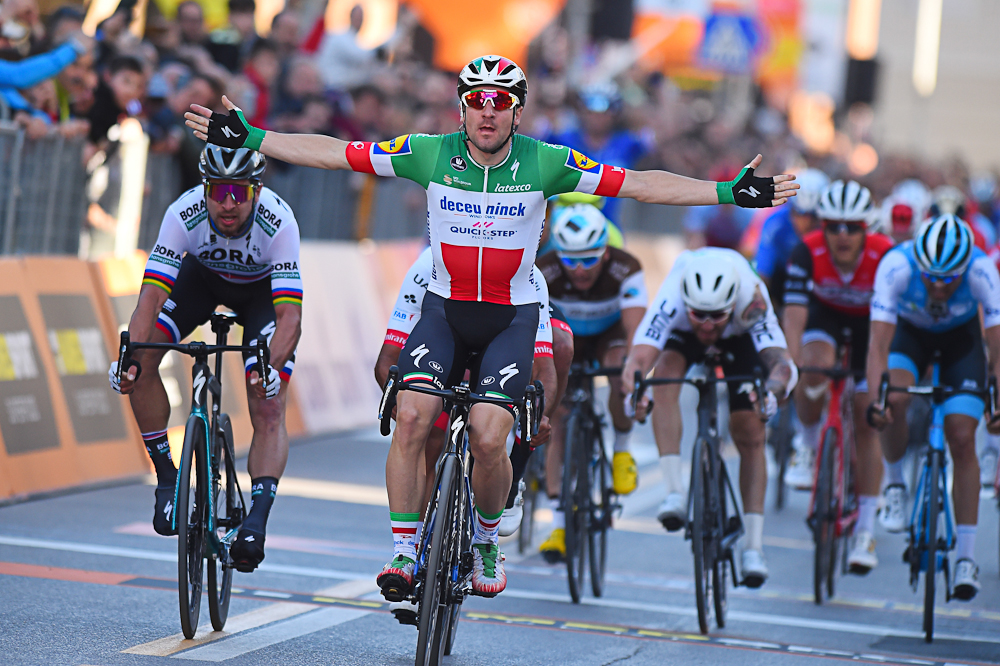
Elia Viviani (Deceuninck-QuickStep) has admitted that the idea that some riders could still be doping despite the Biological Passport leaves him ‘scared’ and worried that everyone in a team could lose their jobs due to one person’s actions.
Viviani beat Peter Sagan (Bora-Hansgrohe) and Fernando Gaviria (UAE Team Emirates) in a highly technical sprint in Foligno on Friday at Tirreno-Adriatico but as Italian national champion and an Olympic champion on the track, he is considered a flag bearer and spokesman for Italian cycling.
There have been suggestions that more cyclists may be involved in the Operation Aderlass blood doping investigation in Austria and Germany after Stefan Denifl and Georg Preidler confessed soon after police raids. The investigation is allegedly centred around Dr. Mark Schmidt, who worked in cycling with the Gerolsteiner team in the late 1990s, with between 40 and 70 blood bags reportedly found in a garage. Schmidt’s clients are suspected to be from Nordic skiing, cycling and other sports.
“The thing that scares me is that someone can still think about doing it,” Viviani said of doping when asked in the post-stage press conference. “I know that a whole team could fold if something happened, so I don’t understand how someone can think to do something.”
Viviani said he feels lucky to be part of a generation that turned professional after what is widely considered to be the worst doping era of professional cycling due to the use of blood-boosting drugs such as EPO and blood transfusions.
The Athlete Biological Passport was introduced in 2008 and is believed to have limited the use of blood-boosting techniques. However, Operation Aderlass appears to have confirmed that athletes are using microdose blood transfusion techniques to avoid being caught by the longitudinal tests and analysis of the Biological Passport. WADA has recently defended the Athlete’s Biological Passport.
“I feel lucky that I turned professional in 2010. Ten years ago it was a moment when cycling had changed. I’m lucky to be part of this generation," Viviani said.
Get The Leadout Newsletter
The latest race content, interviews, features, reviews and expert buying guides, direct to your inbox!
“Everyone was scared off from doing anything because the teams made it clear that if anyone f*cked up, it could have meant everyone lost their jobs.
“As I’ve always said, I think the fact that young riders are able to win, is a sign that the peloton is clean. Turning professional is a big step up and so if young riders can win, it means that you can get results if you do the hard work and have the right talent.”
Viviani revealed he has faced four out-of-competition tests since the start of the current season and welcomed them as part of the profession.
“I’m not worried about the tests. I’ve been tested four times at home since the first of January and I’ve done controls in all the races,” he said.
“That’s not a problem, the problem is that someone, with after all that I’ve just said, can even think of trying to do something.”

Stephen is one of the most experienced member of the Cyclingnews team, having reported on professional cycling since 1994. He has been Head of News at Cyclingnews since 2022, before which he held the position of European editor since 2012 and previously worked for Reuters, Shift Active Media, and CyclingWeekly, among other publications.